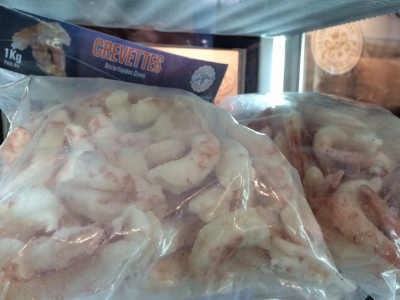Argentinas cut to Patagonian export subsidies upsets shrimp exporters, supports prices

Argentinian shrimp exporters are in discussion with the country’s government asking for reintroduction of subsidies to Patagonian exporters, industry sources told Undercurrent News.
The Argentinian government approved at the start of the month a cut in subsidies to Patagonian exporters. It replaced those subsidies with some refunds to Argentinian food producers across sectors. The cut, which is already in place, has made Argentinian shrimp exporters angry.
“We used to get 8-10% of subsidies, including a subsidy plus a refund. With the new policy, we will get only a 4.5% refund [on raw shrimps],” an Argentinian shrimp exporter told to Undercurrent News.
The cut in subsidy was aimed to reward added-value products, according to a second source from another Argentinian shrimp producer.
But the refund for processed shrimp producers is not much higher than the one given to exporters of raw material, the second source complained. “Shrimp without skin will receive a refund of 5.5%, which is still below what we were previously refunded,” he said.
The subsidies supported part of the cost of product that now irremediably will have repercussions on sale prices, a third source said.
The cut in subsidies doesn’t take into account the higher costs in Patagonia, the second source also noted.
Sources said that -despite negotiations with the government were ongoing- they were not positive on the re-introduction of the cut subsidies.
The Argentinian national government told Undercurrent by email that its new refunds on exports of wool, pears, apples and shrimps will improve the competitiveness throughout sectors across the country.
In order to promote equality of conditions for ports throughout the country, the ministries of agribusiness, production and public finance have repealed the regime of reimbursements to exports from Patagonian ports, it said.
This measure will eliminate distortions that the previous reimbursements generated in trade logistics, it said.
According to the national government, the measure will also have a positive impact on Buenos Aires' ports such as Mar del Plata and Bahia Blanca.
Thus, the old regime encouraged some exports to be diverted to those in Patagonia to take advantage of the reimbursements. “In addition, we will work on proposals to improve logistics in the Patagonian region,” the government said.
Related news
 Scientists Improve Predictions of How Temperature Affects Fish Embryo Survival
Scientists Improve Predictions of How Temperature Affects Fish Embryo Survival Scientists closely tracking the survival of endangered Sacramento River salmon faced a puzzle: the same high temperatures that salmon eggs survived
 Polish Fish Processor Plans Huge Expansion
Polish Fish Processor Plans Huge Expansion Polish fish processor Graal S.A. is on fast track to expand its revenues to some PLN 1 billion (€224.5 million) this year.
 India’s reservoirs show significant potential for aquaculture
India’s reservoirs show significant potential for aquaculture Cage culture systems for fish production are being introduced. View of fish cultured and harvested in a reservoir being weighed. Fisheries management practices